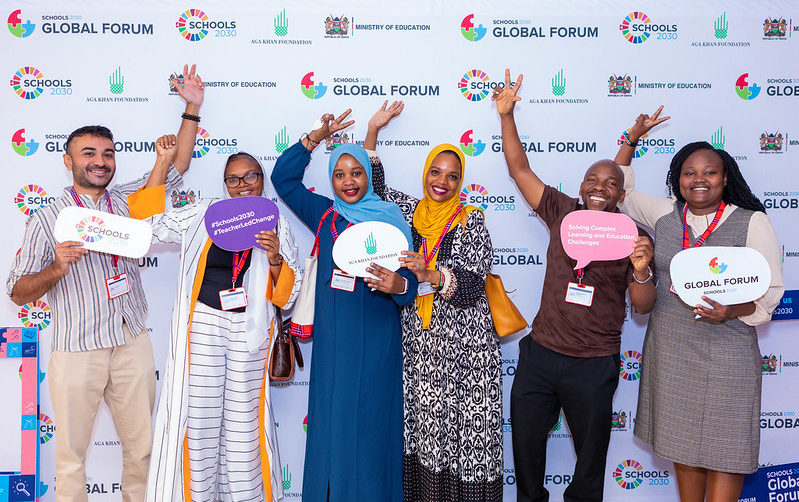Over three inspiring days in June 2025, Nairobi became the global meeting place for over 200 educators, policymakers, researchers, and civil society leaders from across more than 30 countries, gathered for the fourth annual Schools2030 Global Forum. Co-hosted by the Aga Khan Foundation and the Ministry of Education, Kenya, the Forum explored how teachers and schools can be the true partners of choice in solving education’s toughest challenges. Through thought-provoking panels, creative and musical performances, hands-on workshops, and inspiring teacher showcases, the event celebrated teacher leadership and charted a bold path toward transforming learning by 2030 and beyond.
Day 1: Reflecting on the Past, Shaping the Future
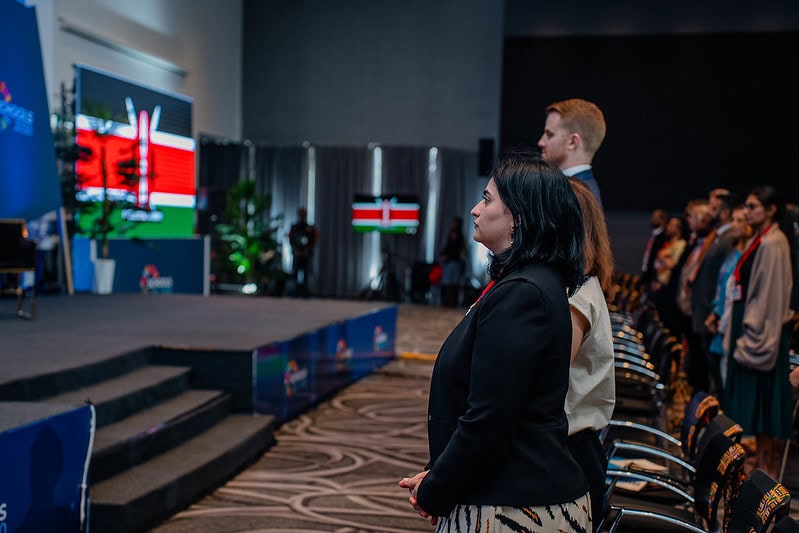
Over 200 delegates and special guests stand for the Kenyan National Anthem, marking the official Opening Ceremony of the fourth annual Schools2030 Global Forum at the Trademark Hotel in Nairobi.
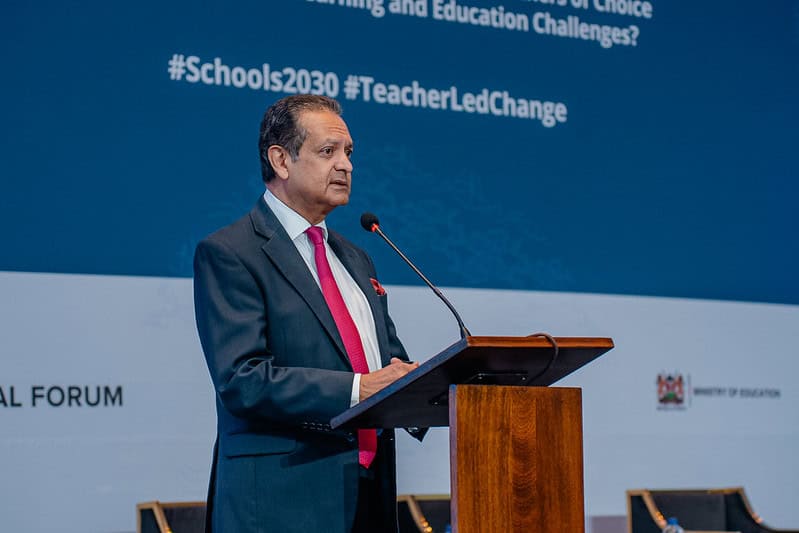
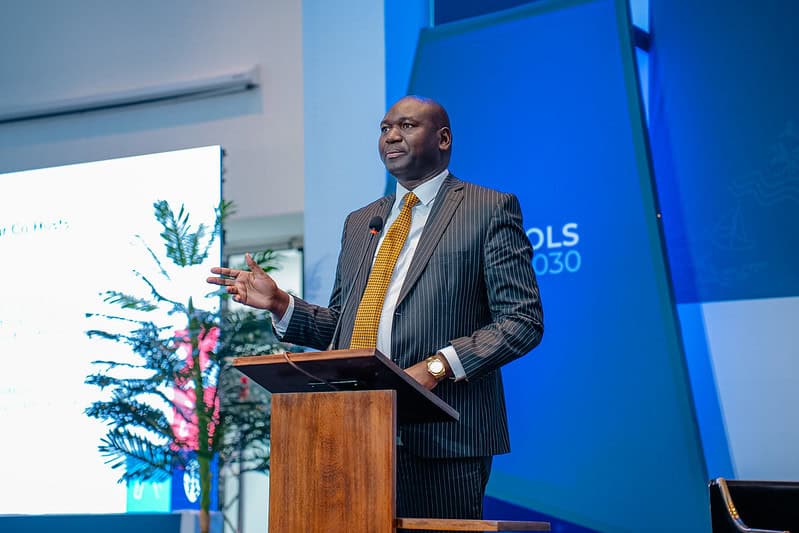
The Forum opened with honourable guests Amin Mawji, OBE, Aga Khan Development Network Diplomatic Representative to Kenya, and Amb. (Prof.) Julius K. Bitok, CBS Ministry of Education, Kenya, on behalf of Hon. Julius Migos Ogamba, EBS, Cabinet Secretary, Ministry of Education, Kenya. Their speeches set the tone for three days of productive discussion and cooperation.
Pictured right: Amb. (Prof.) Julius K. Bitok said,
“Let’s ensure this forum translates into a movement that positions schools and teachers as partners of choice.”
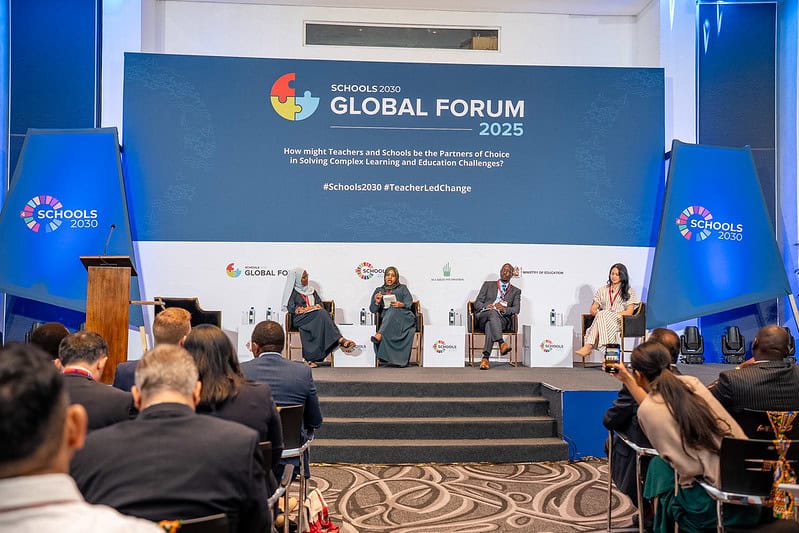
The opening panel addressing the critical question – The Role of Teacher Leadership and Agency for Education
Transformation.
Pictured left to right: Halima Shaaban, Schools2030 Kenya (Chair), Amina Mohamed, Educator, Ronald Gideon Ngala Comprehensive School, Boniface Okumu – Deputy Director, Administrative Services, Teacher Service Commission, Kenya, Grace Cadiz, Atlassian Foundation and Yusuf Sayed, Cambridge University (online).
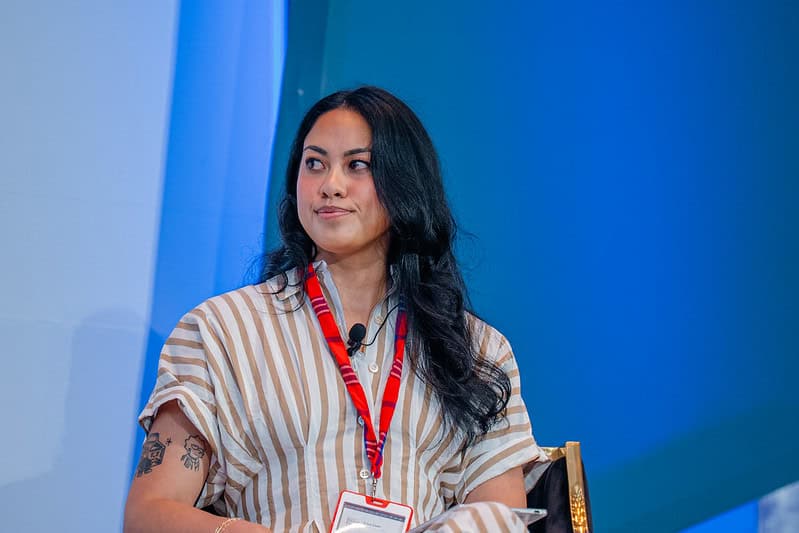
Pictured: Dr Grace Cadiz, Partnerships (Philanthropy) Manager at Atlassian Foundation said,
“There are a lot of skills that technology just cannot replicate; these are the skills that young people need for the future – collaboration, empathy, leadership – the skills teachers use every day in their classrooms.”
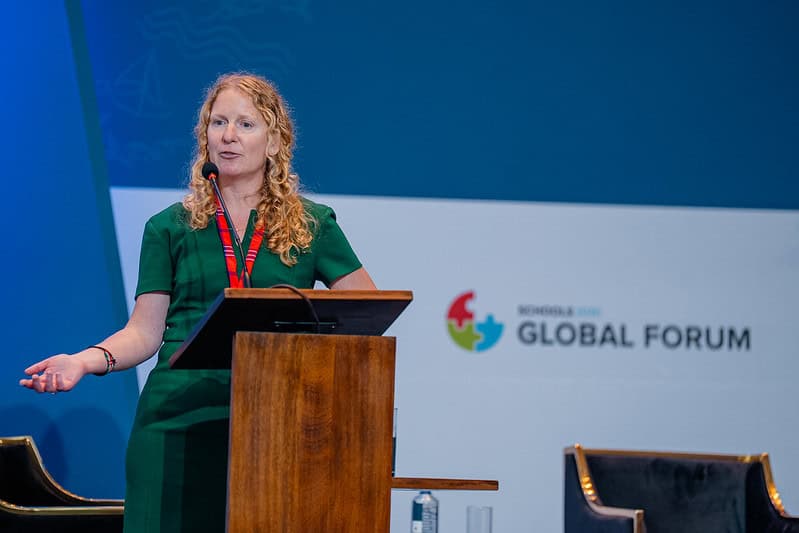
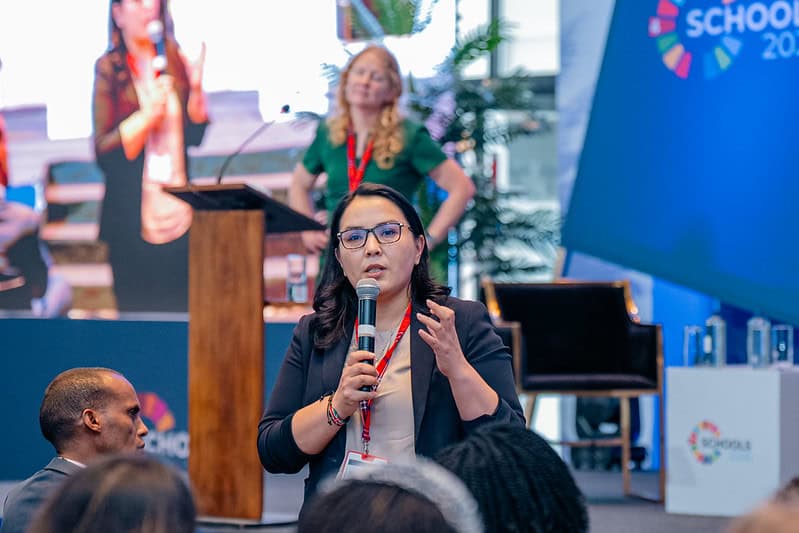
Schools2030 Global Programme Manager, Dr Bronwen McGrath, (left) then hosted an interactive session on Looking Back to Leap Forward: Insights from Schools2030’s First Five Years of Teacher-Driven Impact, welcoming the voices of some familiar faces who have helped to shape our work over the first 5 years of the programme, including Dr Andrew Cunningham, Global Lead for Education, AKF, Nazira Zholdoshbekova, Education Programme Manager, AKF Kyrgyzstan (right) and Arjun Sanyal former programme officer for Schools2030 India.
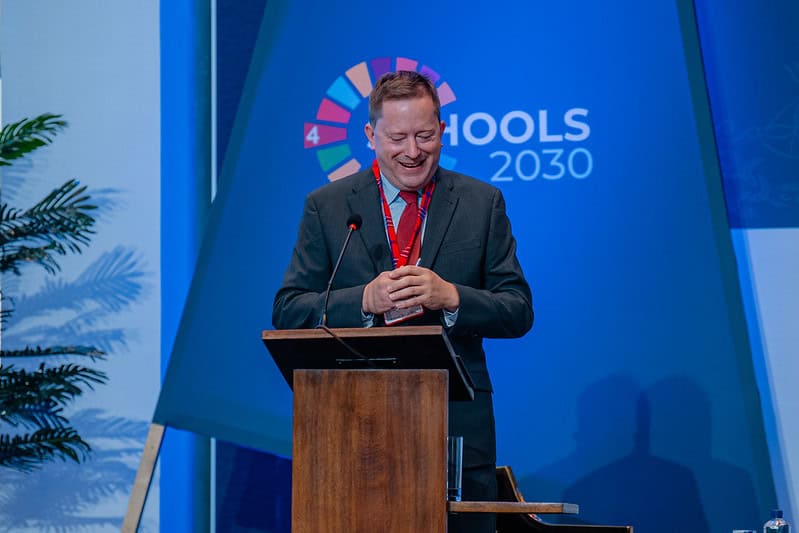
Followed by an inspiring speech from Simon Sommer (pictured above), from our long-standing partner, Jacobs Foundation.
“We must use smart combination between bottom up and down approaches and importantly to understand the local learning needs.”
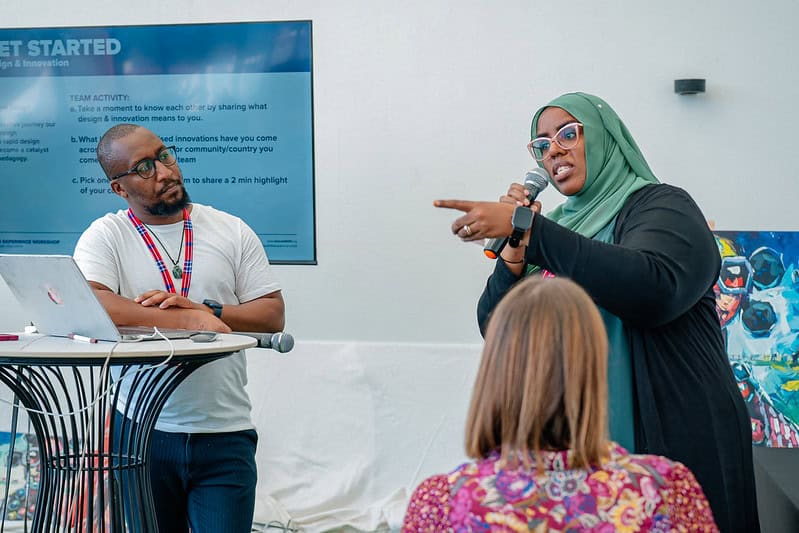
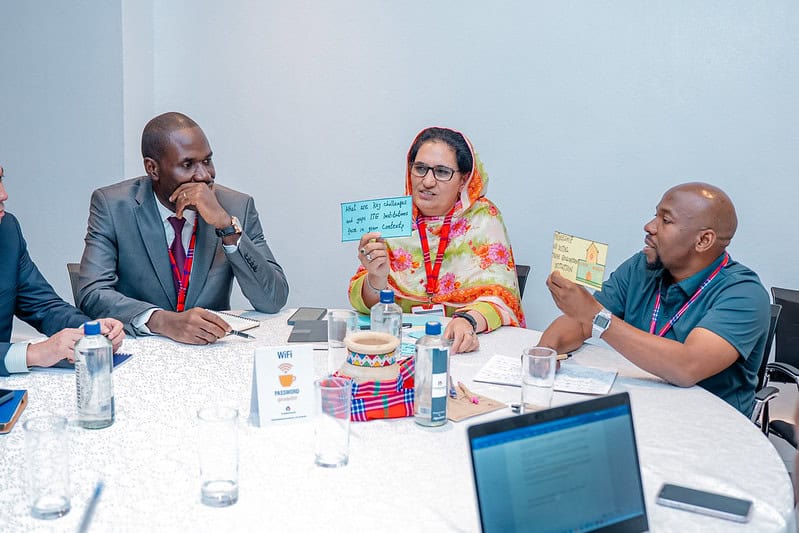
The delegates break out into concurrent workshops covering four streams – Teachers as Researchers, Teachers as Innovators, Teachers as System Leaders and Teachers as Designers – for collaboration and innovation through a range of voices. Workshops on the first day focused on the following themes: how teachers can use data to inform classroom decisions, lead innovation in learning, influence education policy and professional development, and apply human-centred design to address complex challenges.
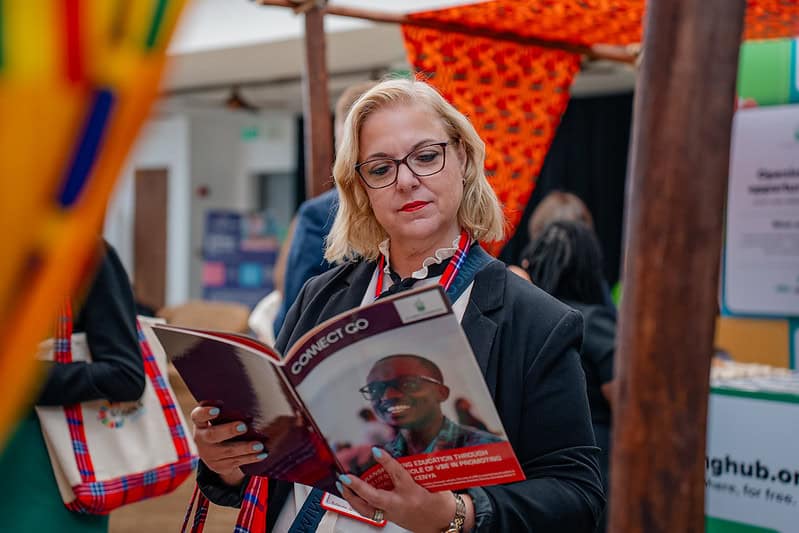
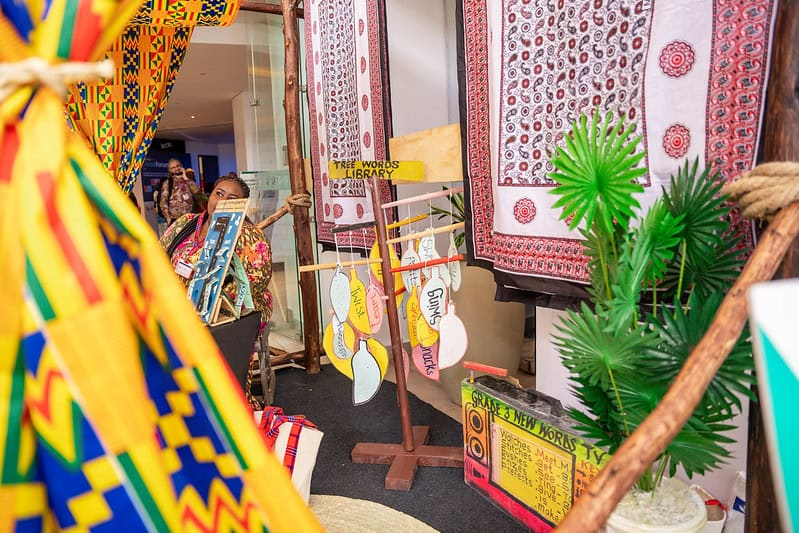
Throughout the Forum, delegates had the chance to learn more about the AKF Learning Hub and AKF East Africa’s Schools2030 activities on the Kenyan coast at these exhibition booths.
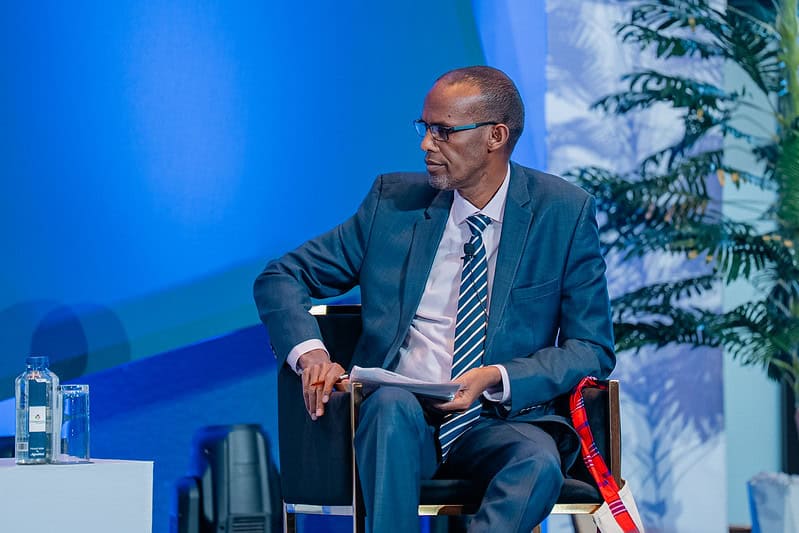
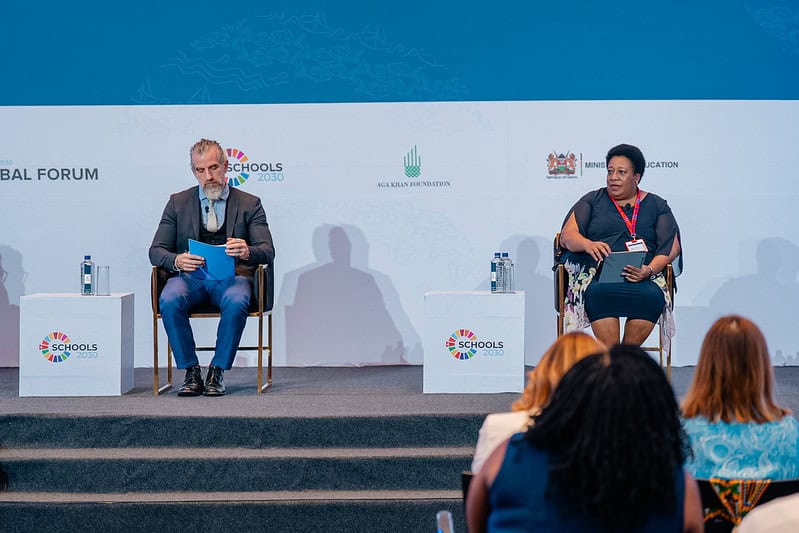
Closing Panel: Five Years of Connecting Schools to Systems – Education leaders reflected on how Schools2030 has helped bridge the gap between classroom innovation and national policy.
Chaired by Riaz Nathu, CEO of AKF East Africa, the session affirmed the need for continued partnership and scaling. Dr. Elyas J. Abdi, OGW, Director General, State Department for Basic Education Kenya (left) Mary Frances Atima, Director, Directorate of Education Standards, Ministry of Education and Sports, Uganda and Jeremy Hopkins, Deputy Regional Director for UNICEF in Eastern and Southern Africa (right).
Day 2: Innovation, Storytelling, and the Voices of Youth
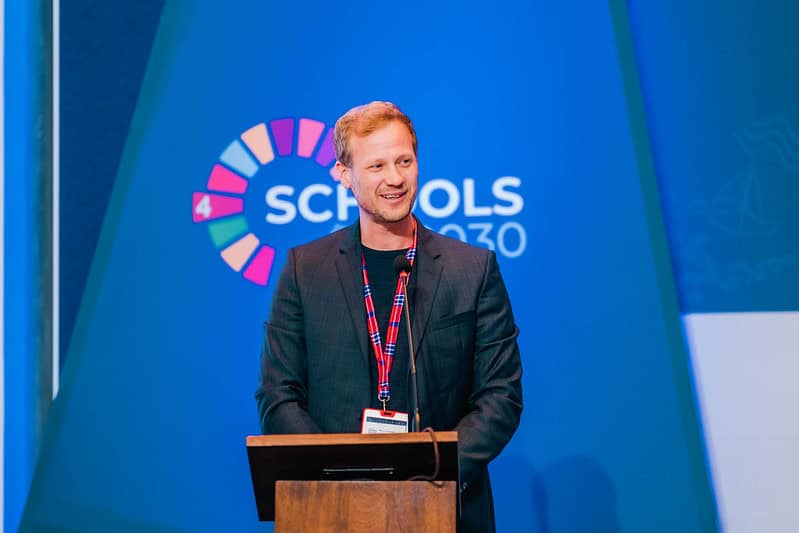
Maurits Spoelder from Education Cannot Wait opened Day 2 with a powerful reflection on the urgent global need to invest in quality learning for children living in crisis-affected contexts. He shared the chilling data that approximately 234 million children are effected by crisis and emphasised the importance of teachers and socio-emotional learning.
“In every crisis, teachers are the first responders to education. They hold classrooms together in chaos. They help children cope with trauma, although often enduring the same hardship themselves.”
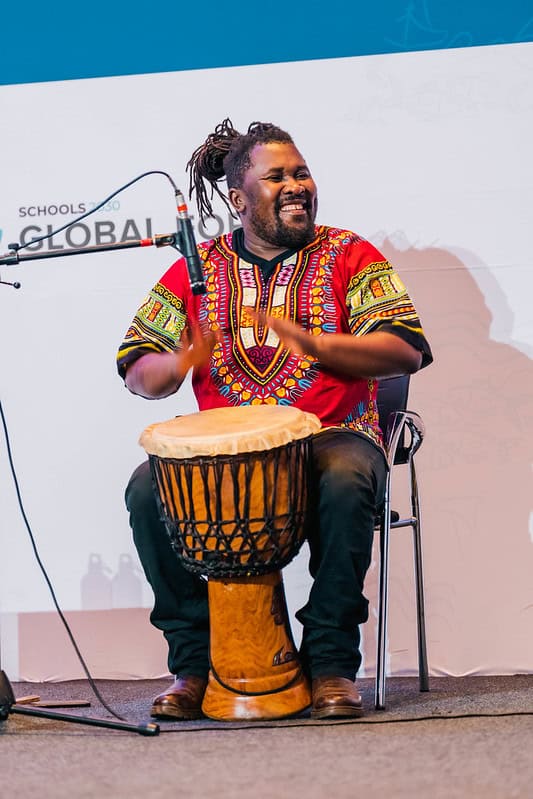
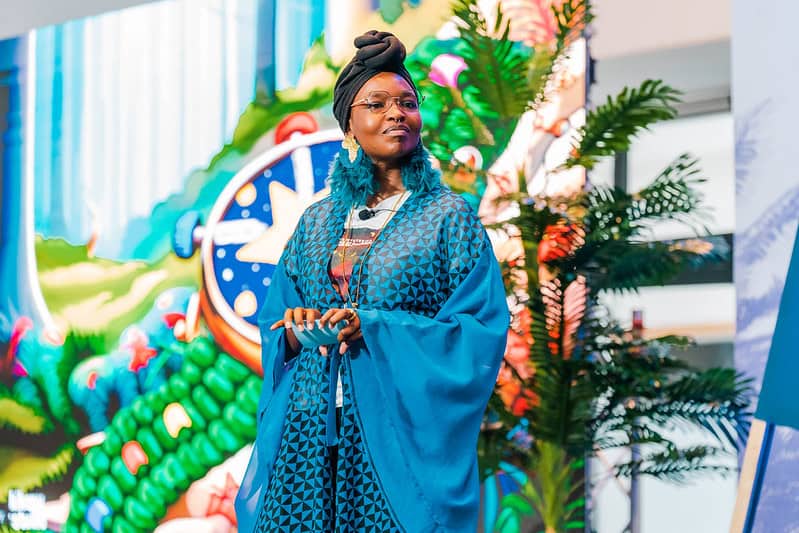
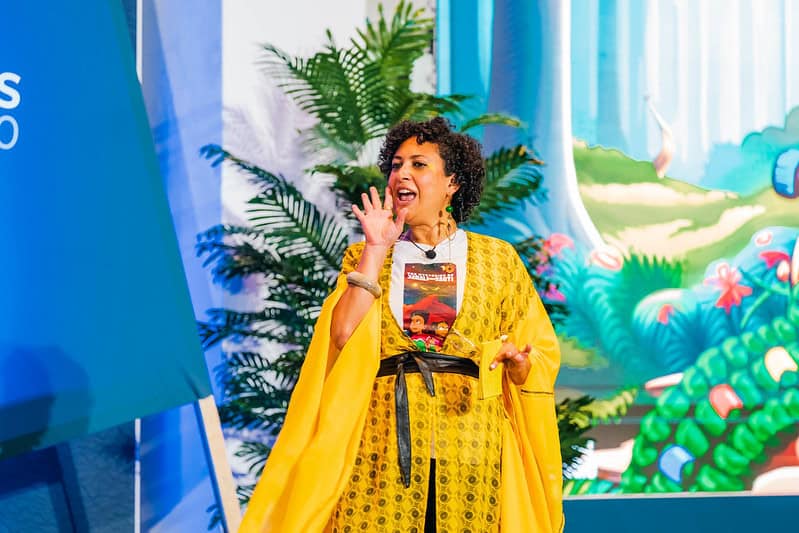
The LAM Sisterhood theatre company brought the room to life with a powerful interactive performance of a Jabali and Sauti story: The Mystery of the Wishing Watch. This live storytelling experience explored how imagination and empathy can help us navigate an uncertain world through the eyes of two young adventurers!
You can view all the Mysteries of Jablii and Sauti on the AKF Learning Hub.
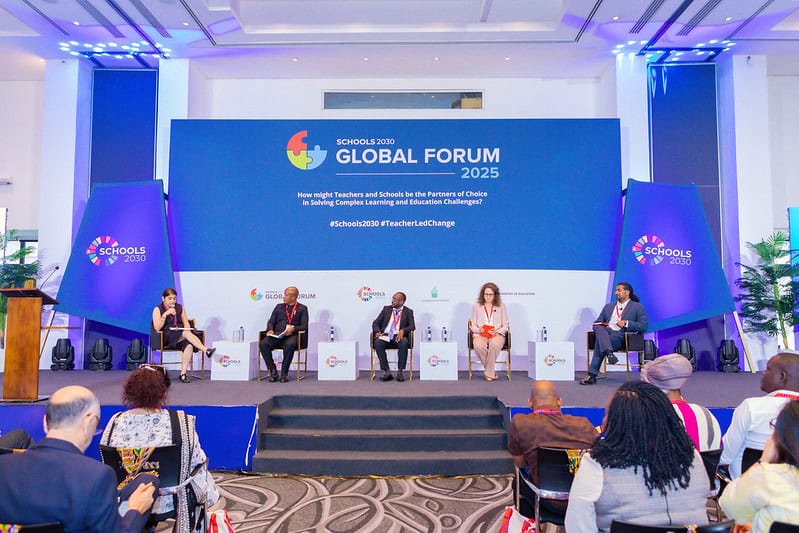
Opening Panel: The Class of 2025 – This session explored how teachers are helping students navigate uncertainty through leadership, innovation, and evidence.
Pictured left to right: The panel included Nafisa Shekhova, Aga Khan Foundation (Chair), Wande Solomon Mkonyi, Headteacher, Toangoma Primary School Tanzania, Adan Abdirahim, Madrasa Early Childhood Programme, Emma van der Meulen, Porticus and Nikhit D’Sa, University of Notre Dame.
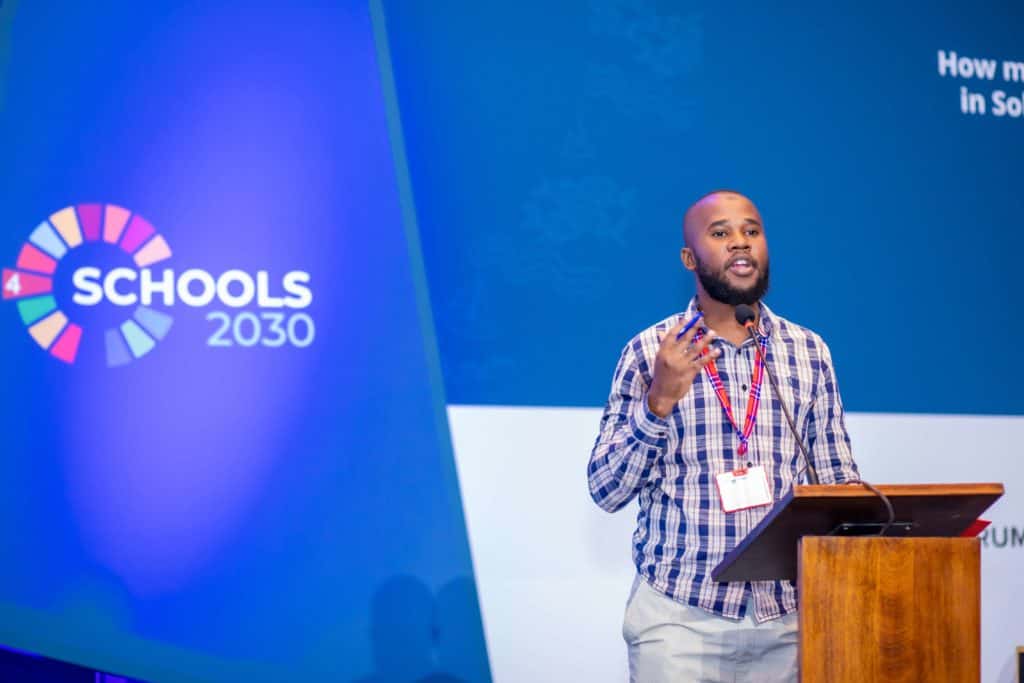
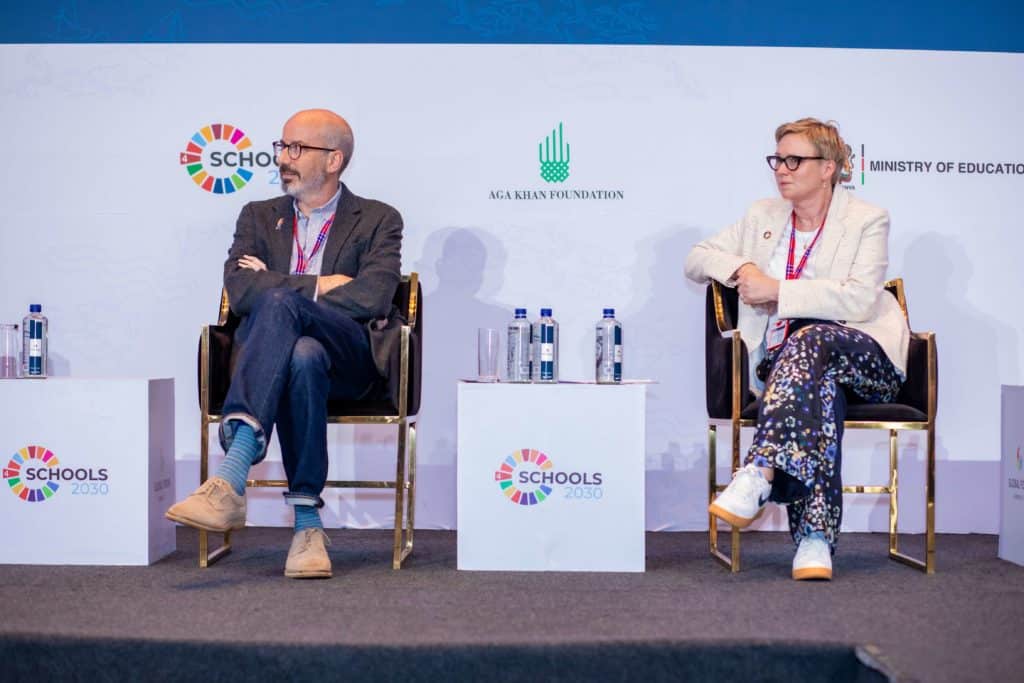
Realising Quality and Inclusive Learning for All – This vibrant exchange of ideas on activating agency, featured Fatma Said Omar of the Lamu Arts and Theatre Alliance, Enos Opiyo from Dream Achievers Youth Organisation, Mohamed Sudi Mchombo of the Likoni Community Development Programme (left), Rob Burnet of Shujaaz (right), Marie Williams of Dream Networks, and Alison Bellwood of World’s Largest Lesson (right), with the conversation chaired by Daniel Mudibo from the Aga Khan Foundation Kenya.
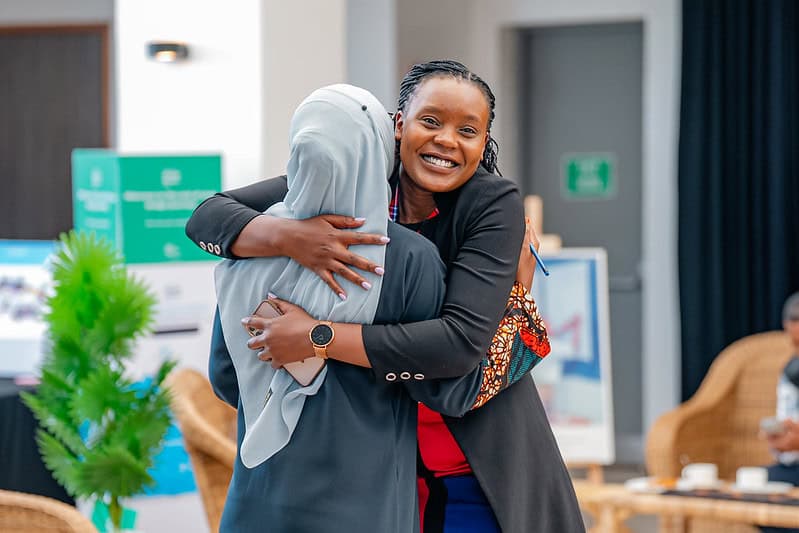
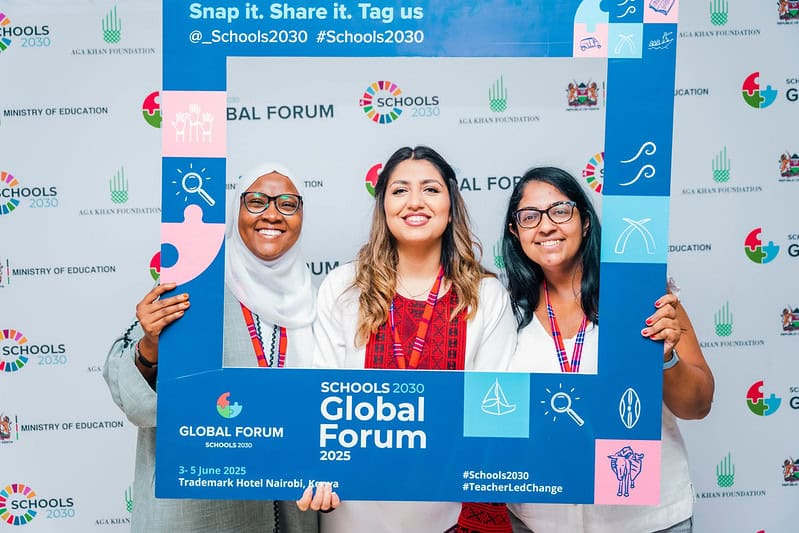
Delegates enjoy some downtime between sessions. The Global Forum not only gives our teachers an amazing platform to share their innovations and ideas, but is also a rare opportunity for educators, partners and Schools2030 country teams to meet in person and collaborate on the next steps for our shared vision!
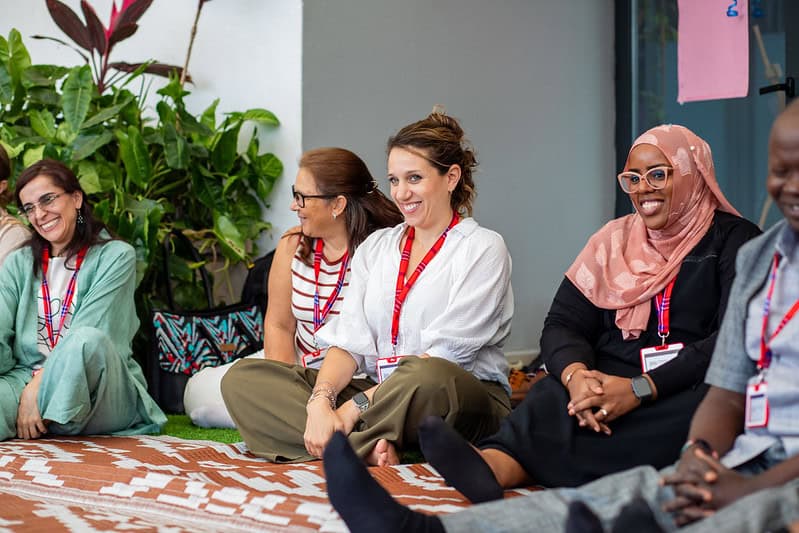
Delegates taking part in the second round of concurrent workshops, diving deeper into the heart of teacher leadership and innovation. They explored themes including co-creating teacher agency in global contexts, supporting learners in crisis-affected settings, building leadership at every level of the education system, and using arts-based approaches to embed values in learning.
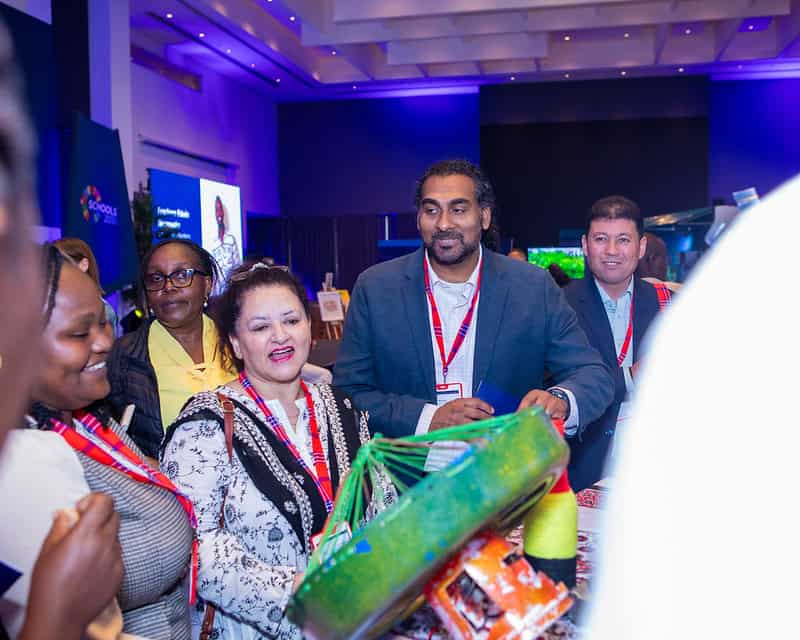
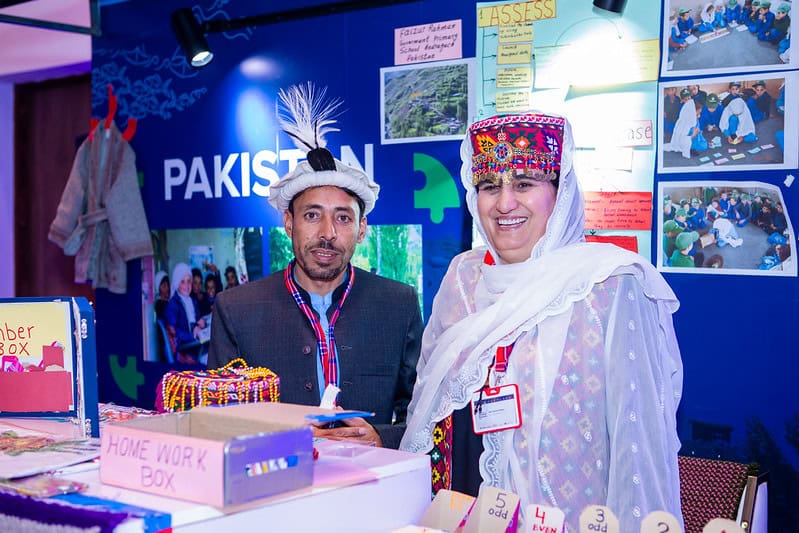
Walimu Soko – The Global Teacher Showcase
In one of the Forum’s most dynamic moments, the vibrant, market-style ‘Walimu Soko’ gathered educators from across the ten Schools2030 countries to present their school-based innovations directly to peers, policymakers, and partners. They shared a wide range of new ideas and hands-on innovations that are solving real challenges in their schools and communities. From the Ugandan teacher, Harriet Nakimbugwe, who designed a fan powered by lemons (top), to teacher Faizur Rehman from Pakistan, with his handmade games to help students learn mathematics through play (bottom), the energy and creativity on display reflected the power of teacher-led change!
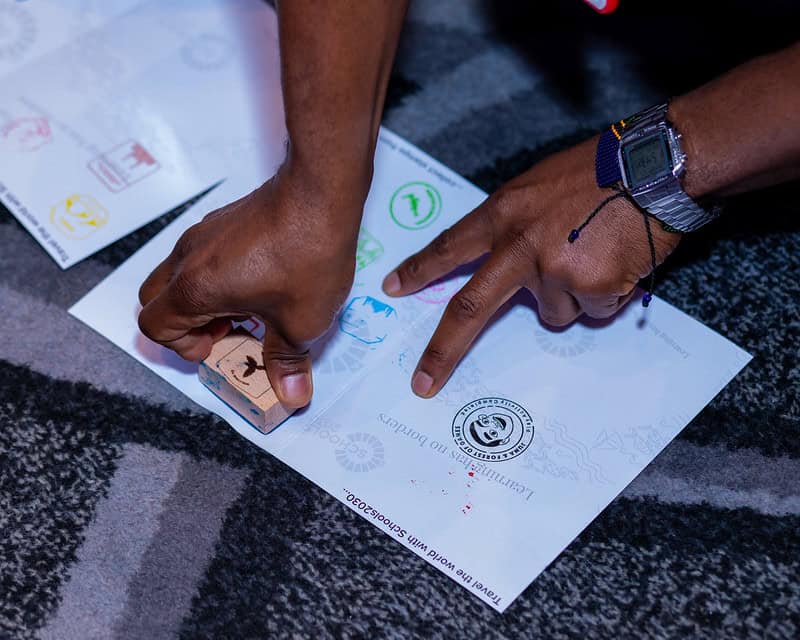
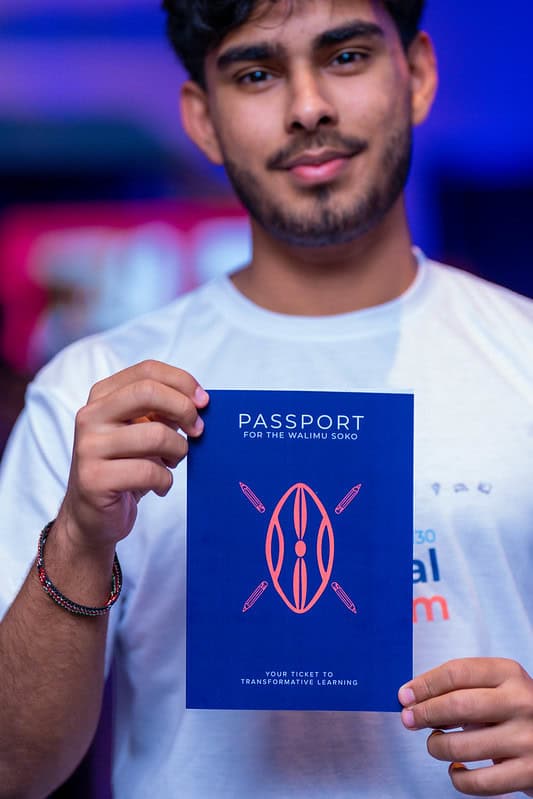
Delegates filled their Walimu Soko passports with stamps from each country’s stand, marking the sharing of innovation.
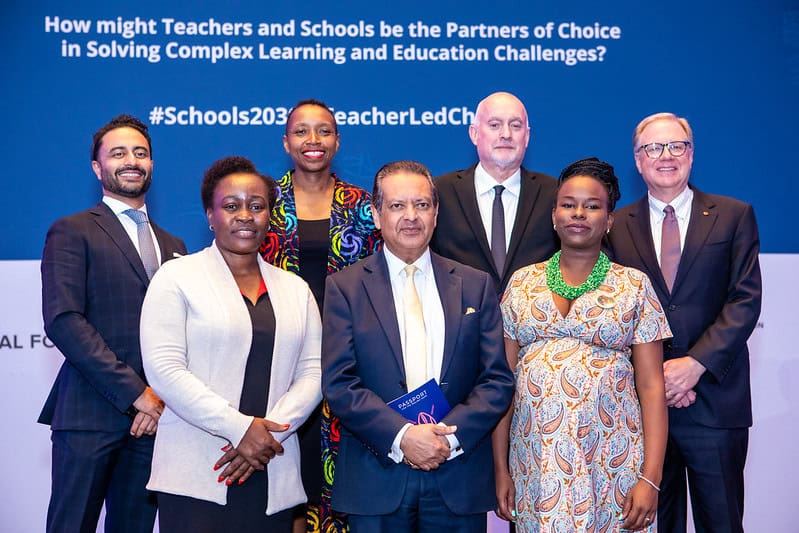
The day concluded with inspiring remarks from Amin Mawji OBE, Diplomatic Representative of the Aga Khan Development Network in Kenya (centre); Christopher Thornley, High Commissioner of Canada to Kenya (back right); Michael Kocher, General Manager of the Aga Khan Foundation (back centre right); and Susan Otieno, CEO of Aga Khan Foundation Kenya (front left), all paying thanks to the teachers and reinforcing their commitment to elevating teacher leadership in education systems.
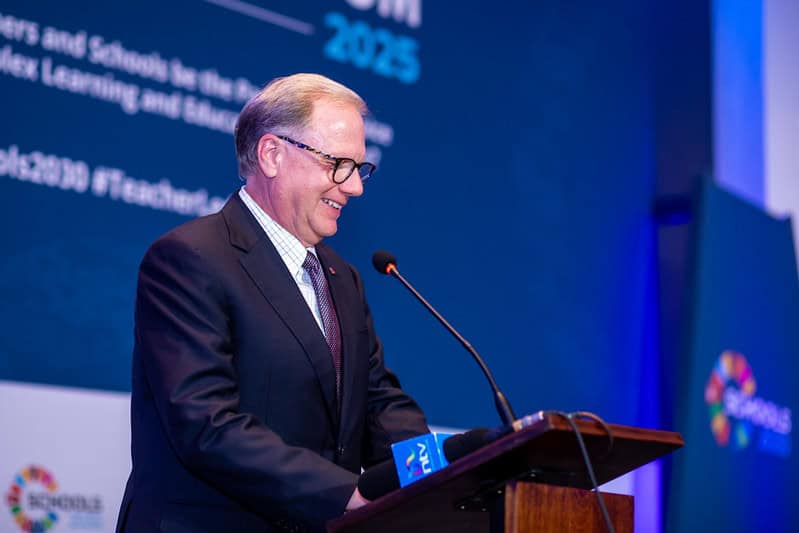
Pictured: Christopher Thornley, High Commissioner of Canada to Kenya
“We can’t go wrong backing the ideas and innovations of teachers. They know it best, they know their classrooms best, and they know they’re students best.”
Day 3: Imagining Tomorrow’s Classrooms, Together
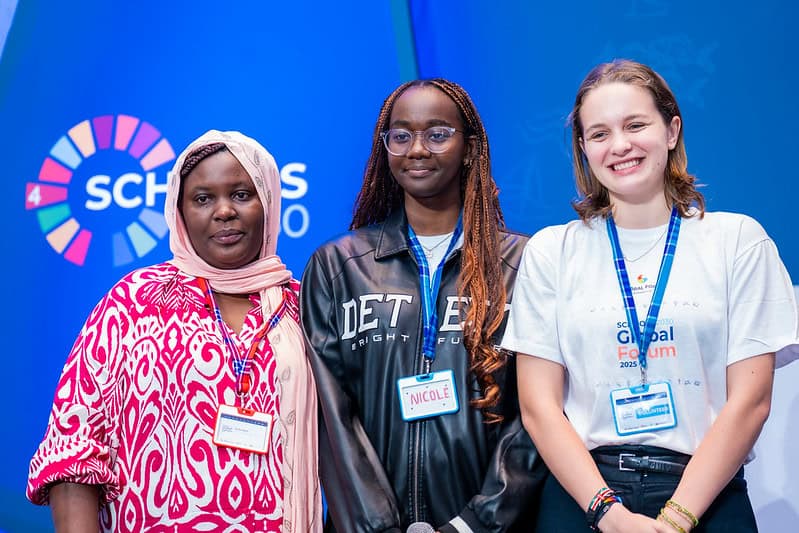
Day 3 opened with a lively welcome led by Aisha Abeid from AKF Kenya, alongside youth volunteers who shared what they learned from the previous two days at the Forum.
“Seeing another person’s point of view is essential in understanding them.” – Yael Hailey, Youth Volunteer
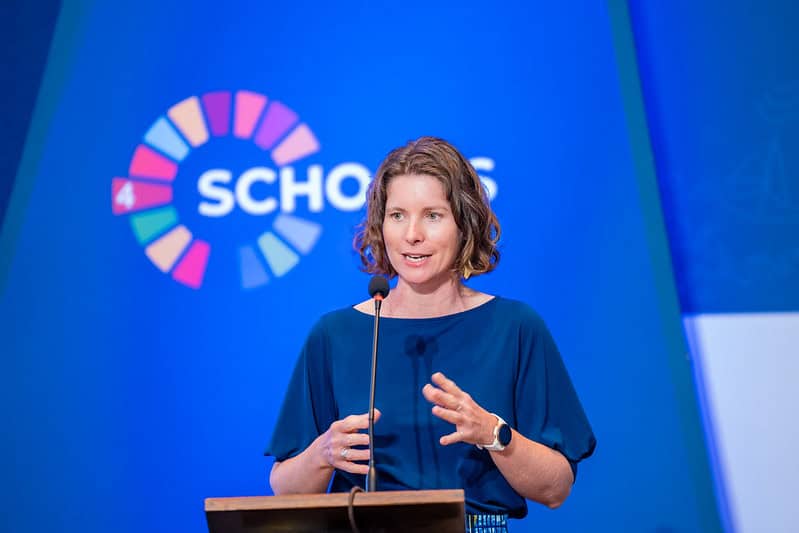
Pamela Gordon, Deputy Head of Cooperation at the High Commission of Canada in Kenya, offered a compelling reflection on global partnerships and how long-term, locally driven collaborations can transform educational outcomes.
“Let’s look towards 2030 with clear eyes – we are in a changed world. More than ever, we need the grassroots leaders. You are our only sustainable choice. You will move us forward. You are the only ones who will get the kids who are not in schools back into school, and energise those who will be leading us in the future.”
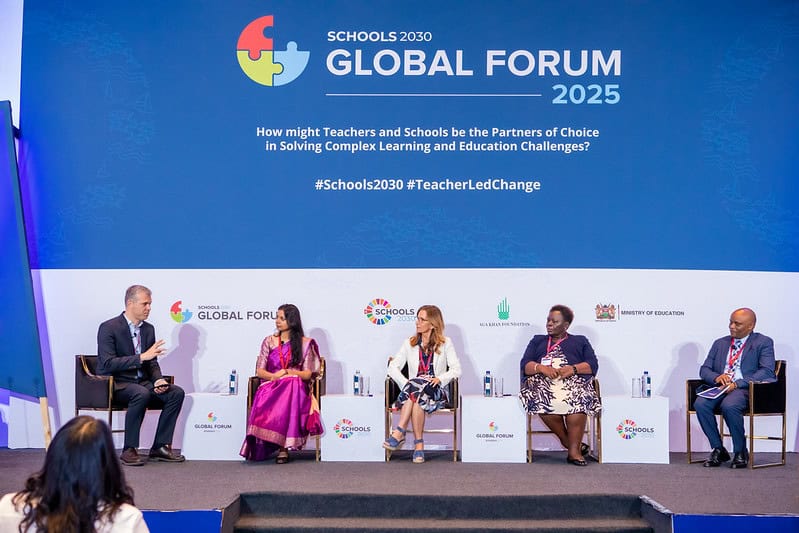
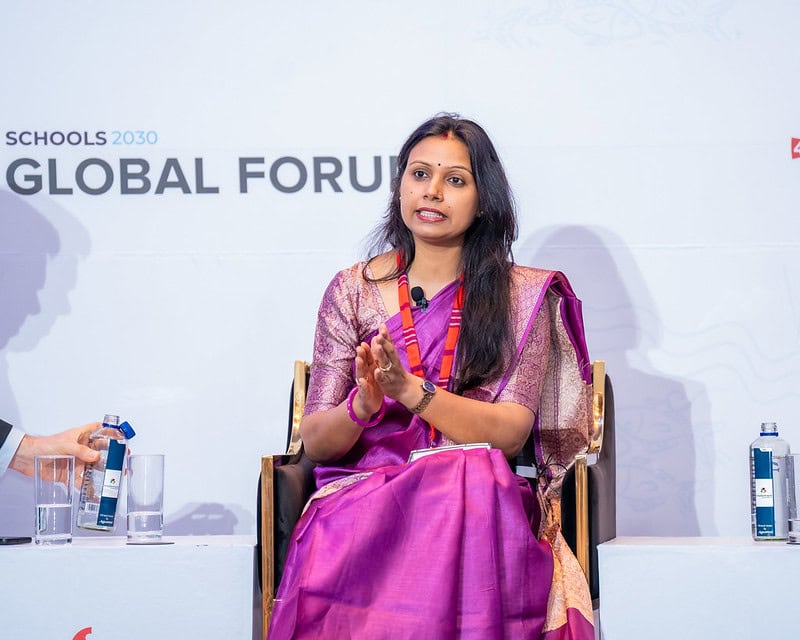
Opening panel: What if we got it right? – In this forward-looking panel, Mamta Kumari, an educator from MS Nargada School in India (right), Jane Rarieya from Aga Khan University Institute for Educational Development, Inês Oom Ferreira Sousa from the Santander Foundation, and Victor G. Bwindiki, Assistant Director for Policy Development in Tanzania’s Ministry of Education (left) discussed how to best partner with teachers to transform education by 2030. Filipe Martins from AKF Portugal chaired this hopeful and strategic discussion, pointing to our shared goals.

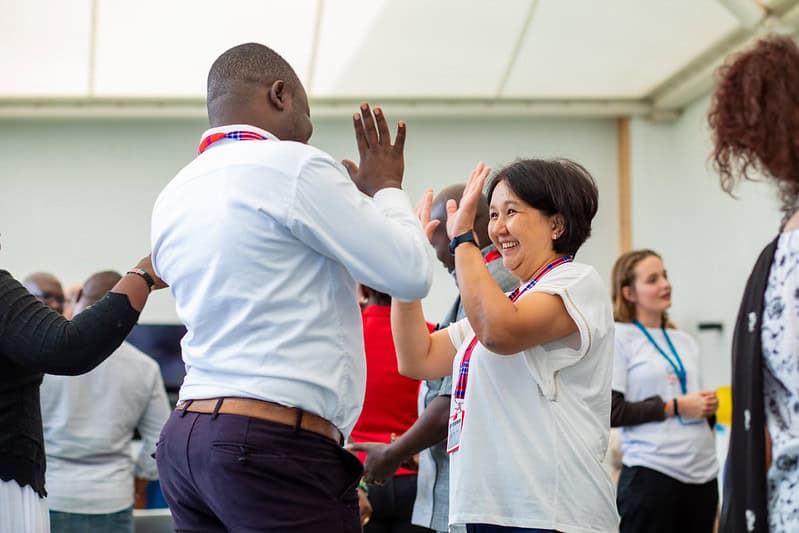
During the final round of cooperative workshops, delegates explored four key themes: reflective teaching as a tool for innovation, inclusive approaches to classroom practice, strategies to scale teacher-led change, and the role of educators in shaping responsible AI for learning.
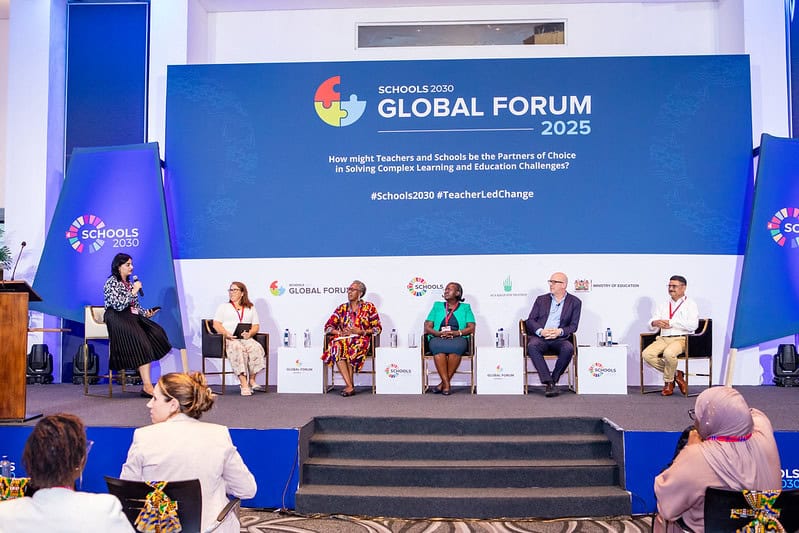
Pictured left to right: Dr Aqeela Datoo, AKF, Iva Furtado from the Agualva Mira Sintra School Cluster in Portugal, Ivy Mwai, Mastercard Foundation, Dr Jacqueline Onyango, Kenya Institute of Curriculum Development, Euan Wilmshurst, KW Strategy, and Deepak Kumar Singh, Deputy Director of Higher Education in Bihar, India.
During the final panel session, this diverse group of speakers were asked – What is the one action to bring about change by 2030?
“More professionalisation and development of teachers at all phases of the teaching journey” – Ivy Nyawira Mwai.
“Teachers need to be at the centre of all. Remember that students need to be at the centre of learning. We need to focus on what learners feel and need, and promote equity, inclusion of all the actors.” – Iva Furtado.
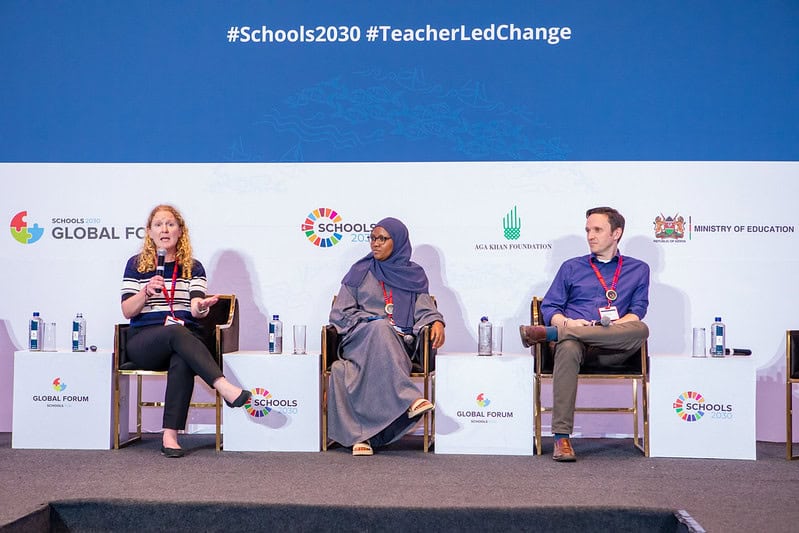
Pictured left to right: Dr Bronwen Magrath, Global Programme Manager of Schools2030, was joined by Halima Shaaban, National Coordinator, Schools2030 Kenya and Matthew Reeves, AKF Global Lead for Civil Society, to reflect on the evolution of the Global Forum over the years and celebrate the collective achievements of the Schools2030 coalition.
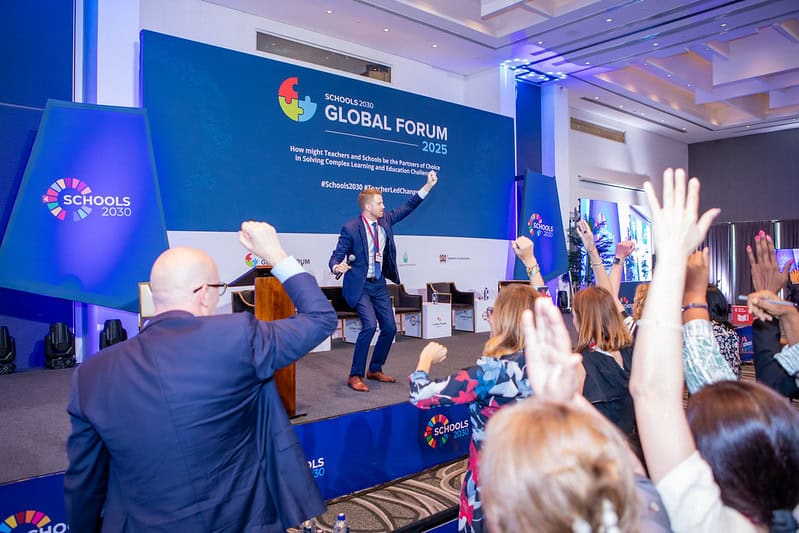
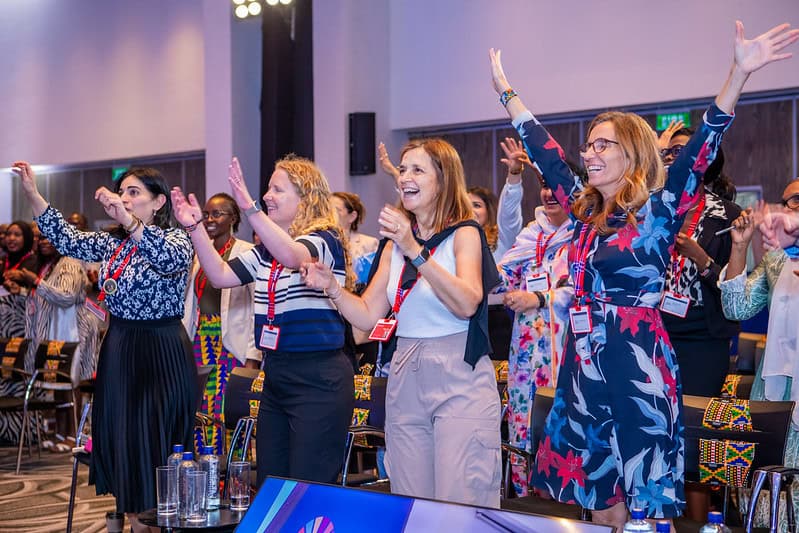
Before the commencement of the closing ceremony, delegates participate in the banana dance energiser, a Global Forum tradition with Dr Andrew Cunningham, AKF, Global Lead for Education.
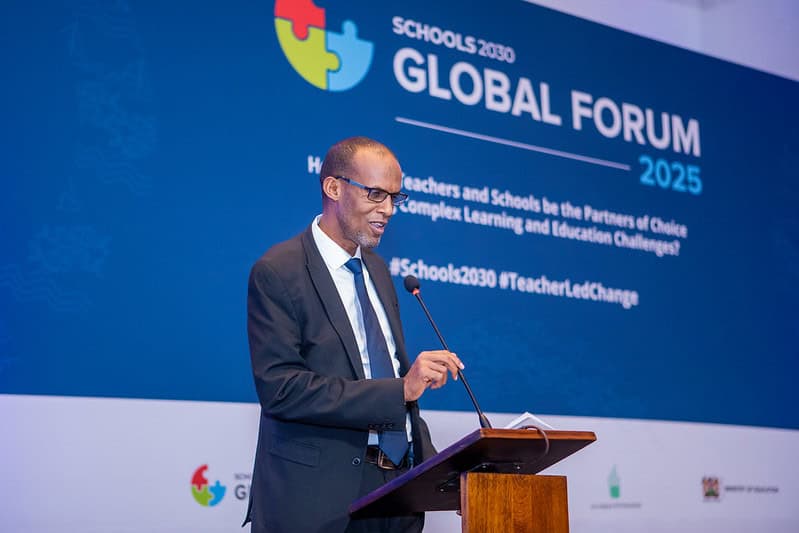
Dr Elyas Abdi Jillaow, OGW, Director General, Principal Secretary, Department of Basic Education, Ministry of Education Kenya, officially closes the Schools2030 Global Forum 2025 in Nairobi with his final remarks.
“I urge all delegates here to embrace the lessons of Schools2030. Let’s make Schools2030 not just a programme but a mindset.”
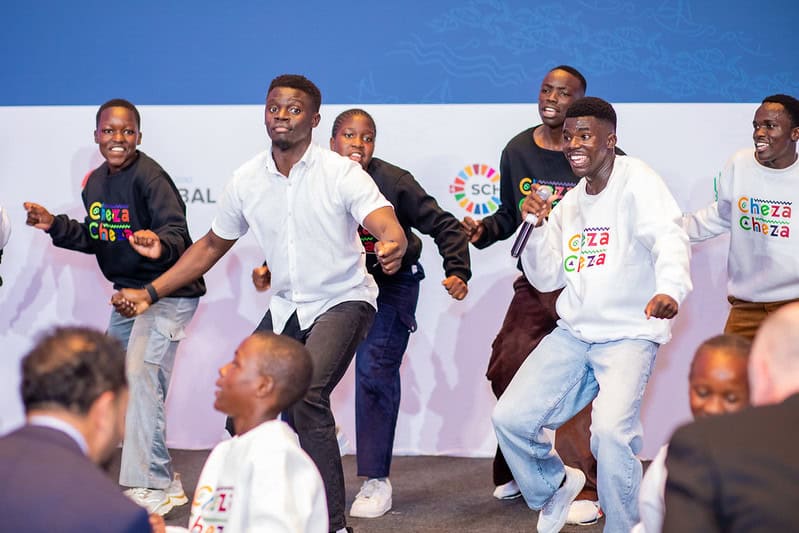
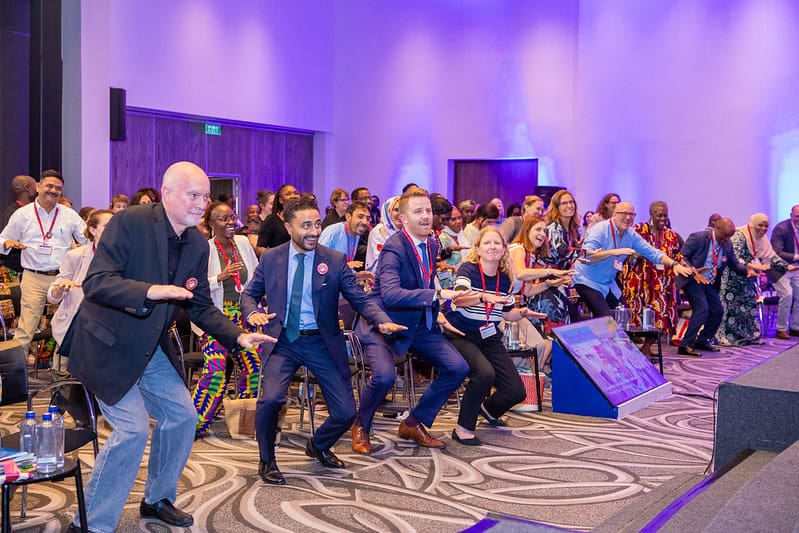
In a joyful finale, the incredible ChezaCheza Dance – a foundation that uses dance as a tool to build essential social and emotional skills of children and young people in marginalised communities – lit up the stage with a vibrant dance showcase! They got everyone on their feet to join in for a real celebration of culture, energy, and the power of movement to unite us all.
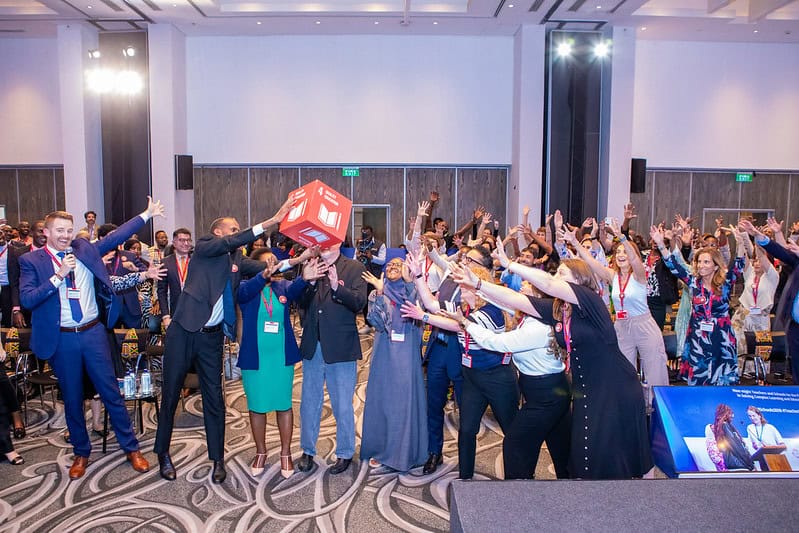
After an incredible few days of innovation, collaboration and cultural enrichment, the Schools2030 Global Forum drew to a close. Delegates leaving with new ideas, motivation and reaffirmed commitment to our shared cause – to rebuild schools that are more inclusive, more innovative, and more connected to the systems around them.
In his closing remarks, Dr Andrew Cunningham announced that next year, instead of convening another Global Forum, the Schools2030 team would be handing responsibility to the wider community of delegates and their networks to continue amplifying and scaling the role of teachers in transforming education. In a symbolic gesture, he passed the SDG4 cube into the hands of the delegates, marking this powerful moment of shared ownership.
Thank you to every teacher, policymaker, youth volunteer, partner, and participant. Now is the time to follow up, deepen partnerships, and take real action to ensure that every idea shared moves learners forward globally.
Click to view all the event photos on Flickr.
Find out more about our annual Schools2030 Global Forums – including who attends, what happens each year and importantly, why we believe they are crucial to our overall goal of improving learning outcomes for students worldwide!
